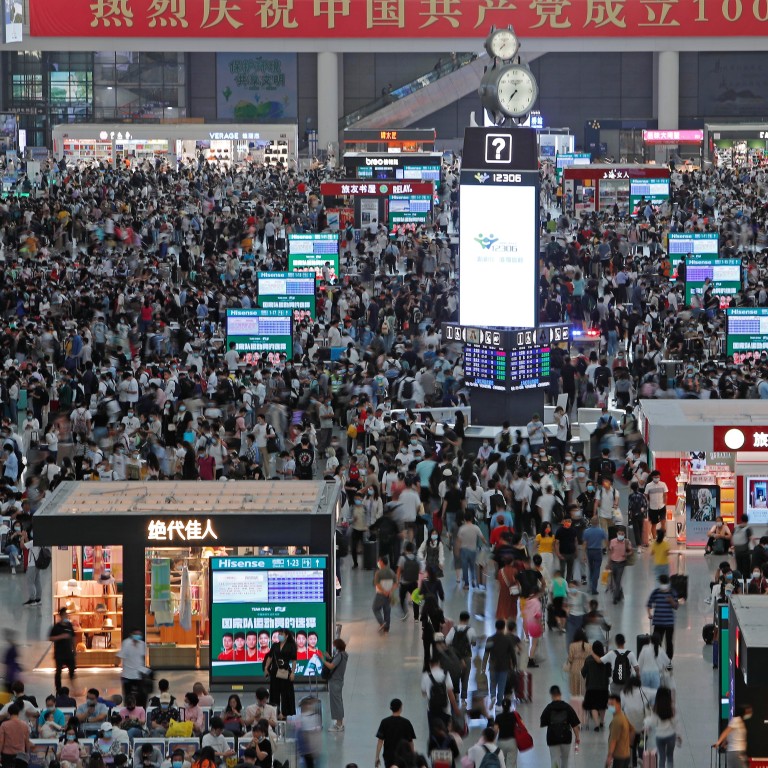
China’s ‘golden week’ travel drops as zero Covid-19 approach forces consumers to stay home
- The number of trips taken on roads on Wednesday was 34.1 per cent below levels seen in 2019 and 2.2 per cent lower than last year
- Officials advised against unnecessary travel and gatherings over the ‘golden week’ holiday, which began on Friday, citing the risk of further coronavirus outbreaks
Travel during China’s “golden week” national holiday was down by a third on pre-coronavirus levels, with government measures to contain sporadic outbreaks prompting holidaymakers to spend closer to home.
The number of trips taken on China’s roads on Wednesday was 34.1 per cent below levels seen in 2019, according to the transport ministry, and 2.2 per cent lower than last year.
Trips taken on roads, rail and other transport networks have been consistently a third below pre-pandemic levels for each of the first five days of the week-long break.

01:16
Tourists stranded 2 hours on mountain due to bad weather during China’s national holiday
Officials advised against unnecessary travel and gatherings over the golden week holiday, which began on Friday, citing the risk of further outbreaks.
Multiple economists have recently downgraded their forecasts for economic growth for this year.
Recent Covid outbreaks are also still weighing on domestic spending and this pressure is likely to linger for longer
“Recent Covid outbreaks are also still weighing on domestic spending and this pressure is likely to linger for longer,” Louis Kuijs, head of Asia economics at Oxford Economics, wrote in a note.
He downgraded his estimate for China’s growth in the fourth quarter to 3.6 per cent year-on-year from 5 per cent previously, citing the continued impact of property curbs as the main factor.
There are signs consumers may be spending more on leisure activities closer to their places of residence even as they travel less.
Cinema ticket sales over the first five days of the holiday were 3 billion yuan (US$465 million), compared with 2.7 billion yuan in 2020, according to ticketing company Maoyan.
Sales were driven by the success of Battle at Lake Changjin a patriotic film about the Korean war. Those sales were still below 2019 levels, when film-goers spent 3.25 billion yuan over the first five days of the holiday.
A golden week consumption trend report issued by food delivery giant Meituan on Wednesday showed almost 80 per cent of people consumed at their local place of residence during the holiday.
Total spending on the platform on everything from food to travel rose almost 30 per cent compared with last year’s holiday, and grew by more than 50 per cent compared to 2019, local media reported.

